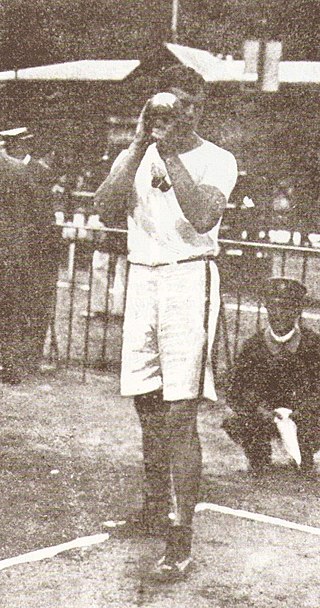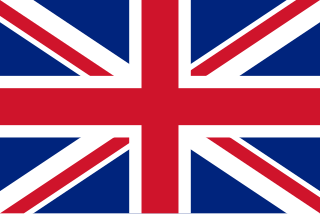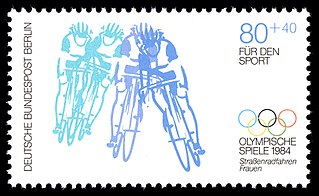
The 1900 Summer Olympics were held as part of the 1900 World's Fair, during which many cycling events were contested. The IOC website currently affirms a total of 3 medal events, after accepting, as it appears, the recommendation of Olympic historian Bill Mallon regarding events that should be considered "Olympic". These additional events include the men's points race. Thus, three cycling events are considered Olympic events. These three competitions were held between 9 September and 16 September 1900. The cycling part of the World's Fair included 250 competitors, 160 of them French. In the sprint and 25 km events, 72 competitors, all men, from seven nations competed.

The United States competed at the 1900 Summer Olympics in Paris, France.

Richard Sheldon (July 9, 1878 in Rutland, Vermont – January 23, 1935 in New York, was the winner of the gold medal in the men's shot put at the 1900 Summer Olympics held in Paris, France.

The United Kingdom of Great Britain and Ireland competed as Great Britain at the 1900 Summer Olympics in Paris, France. It was the second appearance of Britain after having participated in the inaugural 1896 Games. In Olympic competition, the nation has always shortened its official name to Great Britain rather than the United Kingdom seen elsewhere.

The United Kingdom has been represented at every modern Olympic Games. By end of the 2024 Summer Olympics, it is third in the all-time Summer Olympic medal table by overall number of medals, and fourth in number of gold medals won. London hosted the Summer Olympic Games in 1908, 1948 and 2012.

Italy has sent athletes to most of the modern Olympic Games held since 1896, outside of not having officially participated in the 1904 Summer Olympics.

Water polo has been part of the Summer Olympics program since the second games, in 1900. A women's water polo tournament was introduced for the 2000 Summer Olympics. Hungary has been the most successful country in men's tournament, while the United States is the only team to win multiple times at the women's tournament since its introduction. Italy was the first to win both the men's and women's water polo tournaments.

The men's sprint was one of the three cycling events, all track cycling, now regarded as "Olympic" on the Cycling at the 1900 Summer Olympics programme. It was held on 11 September and 13 September. The sprint, a 2000-metre race with 1000-metre heats, was conducted in four rounds. 69 of the 72 cyclists competed in the sprint, including cyclists from all six competing nations. The event was won by Albert Taillandier of France, with his countryman Fernand Sanz in second place. John Henry Lake of the United States won the nation's first cycling medal with his bronze.

The men's 25 kilometres was one of three cycling events, all track cycling, on the Cycling at the 1900 Summer Olympics programme that were open to all amateurs, had more than one nation participating and no handicapping. It was held on 15 September. Ten cyclists competed. Four had already competed in the sprint event. The result of the race proved Louis Bastien of France to be the top long-distance cyclist present, while Lloyd Hildebrand finished in second and Auguste Daumain in third. One of the contestants, Louis Trousselier, would go on to win the 1905 Tour de France. Prizes were awarded to the top four finishers: art objects valued at 400 francs, 300 francs, 200 francs (third), and 100 francs (fourth).

Albert Philippe Taillandier was a French racing cyclist who competed in the late 19th century and early 20th century. He participated in cycling at the 1900 Summer Olympics in Paris and won the gold medal in the men's sprint.

Lloyd Augustin Biden Hildebrand was a British-born racing cyclist who competed in the late 19th century and early 20th century. Hildebrand was still a British citizen in 1900, although he lived in France for much of his life and married a Frenchwoman. He participated in cycling at the 1900 Summer Olympics in Paris, winning the silver medal in the men's 25 kilometre race. as well as the bronze medal 1900 Track Cycling World Championships.

Eugène Louis Bastien was a French racing cyclist and fencer who competed in the late 19th century and early 20th century. He participated in Cycling at the 1900 Summer Olympics in Paris and won the gold medal in the men's 25 kilometre race. He also competed in the individual épée event at the same games.

Belgium was the host nation for the 1920 Summer Olympics in Antwerp. 336 competitors, 326 men and 10 women, took part in 121 events in 23 sports.

Marcus Latimer Hurley was an American cyclist who competed in the early twentieth century. He specialized in sprint cycling and won 4 gold medals in Cycling at the 1904 Summer Olympics and a bronze medal in the 2 mile race.
Burton Cecil Downing was an American racing cyclist who competed in the early twentieth century. An all round cycling talent, he competed in Cycling at the 1904 Summer Olympics and won two gold medals in the 25 mile and the 2 mile, three silver medals in the ¼ mile, ⅓ mile and mile and a bronze medal in the ½ mile race.
Frederick Henry "Harry" Wyld was a British track cyclist. He won bronze medals at the 1924 and the 1928 Summer Olympics.

Auguste Moïse Daumain (1877-1938) was a French racing cyclist who competed in the late 19th century and early 20th century. He participated in Cycling at the 1900 Summer Olympics in Paris and won the bronze medal in the men's 25 kilometre race. In the men's sprint, he finished third in the second heat and third in the fourth heat in the quarterfinals.

The men's sprint cycling event at the 1984 Summer Olympics took place from 31 July to 3 August and was one of eight cycling events at the 1984 Olympics. Once again, the limit on cyclists per nation was raised to 2. The event was won by Mark Gorski of the United States, the nation's first victory in the men's sprint and first medal in the event since John Henry Lake took bronze in 1900. The final was all-American, as Nelson Vails took silver, becoming the first Olympic cycling medalist of African descent. Japan earned its first medal in the men's sprint with Tsutomu Sakamoto's bronze. France's five-Games podium streak in the event ended.
Jon David Andrews is a New Zealand cycling coach and former Olympic cyclist. He won two bronze medals at the 1990 Commonwealth Games. He competed at the 1992 Summer Olympics.
Charles Pierre Victor Delaporte was a French rower and cyclist.














